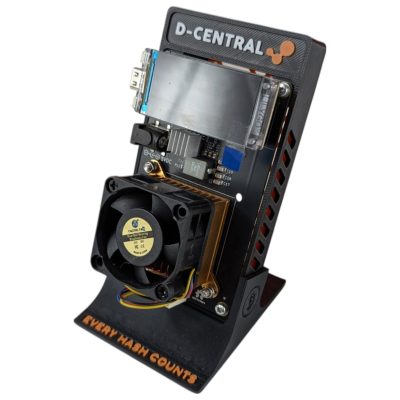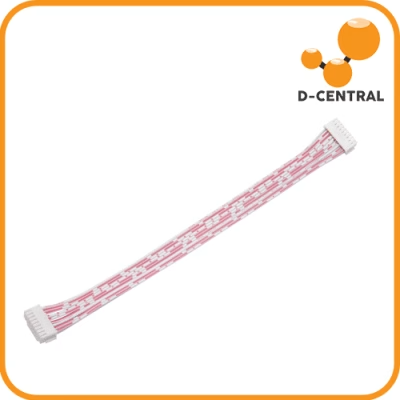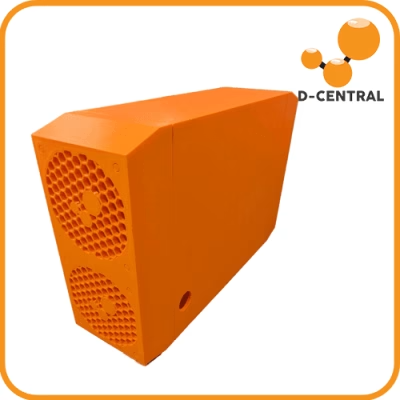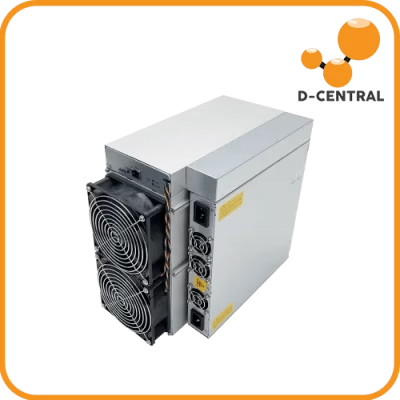Discover how home miners contribute to Bitcoin’s decentralized network and learn about D-Central’s innovative mining solutions for enthusiasts and professionals alike.
Understanding Bitcoin Governance and the Importance of Home Miners
Bitcoin governance represents a unique integration of technology, community, and economics, where each participant plays a crucial role in shaping the future of this decentralized currency. Among these participants, home miners emerge as essential contributors, not only to network security but also to the broader governance landscape of the cryptocurrency ecosystem.
In this comprehensive guide, we’ll explore the significant role home miners play, the challenges they encounter, the benefits of their involvement, and practical steps for entering the realm of Bitcoin mining within the decentralized network. Whether you’re exploring the concept of mining or seeking to enhance your participation, this article offers valuable insights for all interested parties.
The Basics of Bitcoin Governance
Bitcoin governance encompasses the collective decision-making process that directs the Bitcoin network, shaping its blockchain technology, mining pools, and overall ecosystem development. This decentralized governance structure includes various stakeholders, such as miners, node operators, and community participants, all of whom are vital to maintaining network security, scalability, and implementing protocol changes or governance models.
Key Components of Bitcoin Governance:
- Miners: Validate transactions and secure the network
- Node Operators: Maintain a copy of the blockchain and enforce network rules
- Developers: Propose and implement protocol improvements
- Users: Participate in discussions and signal support for changes
As Bitcoin continues to evolve, the significance of effective governance mechanisms is paramount, given their direct influence on miner incentives, economic power, and community-driven decisions within the cryptocurrency landscape, including ecosystem participation.
Understanding the Role of Miners and Governance Models
Miners play a fundamental role in the Bitcoin network by validating transactions through a process known as proof of work, which ensures network security and maintains the integrity of the blockchain. This transaction validation is crucial for the overall health of the decentralized ecosystem.
The Impact of Miners on Bitcoin’s Ecosystem:
- Securing the network through computational power
- Validating and adding new transactions to the blockchain
- Participating in the consensus mechanism
- Influencing protocol changes through mining power
Their technical expertise is essential, as the validation process involves complex computations that require significant computational power and energy. This expertise directly impacts the hash rate, which serves as a measure of a miner’s performance and their capability to solve cryptographic puzzles.
As miners compete for block rewards, their economic incentives drive them to invest in advanced mining hardware and optimize their operations, ultimately enhancing the overall efficiency of the network. By validating transactions, they not only secure the blockchain but also facilitate its scalability, enabling a growing number of transactions to be processed effectively.
The Importance of Home Miners in Bitcoin Ecosystem
Home miners are integral to the Bitcoin ecosystem, as they contribute significantly to its decentralization and enhance the network’s resilience. Their participation in decentralized finance and network upgrades underscores their importance in governance. By utilizing consumer-grade mining hardware, they validate transactions and secure the blockchain, thereby playing a crucial role in maintaining the integrity and functionality of the network.
Benefits of Home Mining to the Bitcoin Network:
- Increased decentralization
- Enhanced network security
- Broader distribution of mining rewards
- Greater community involvement in governance
How Home Miners Contribute to Network Security and Governance
Home miners play a critical role in enhancing network security by actively participating in the Bitcoin consensus mechanism, validating transactions, and maintaining the blockchain through their combined computational power.
Their involvement not only decentralizes mining activities but also fosters a more resilient network against potential attacks. When numerous home miners engage in the mining process, they collectively increase the total hashrate, which makes it increasingly challenging for any single entity to manipulate or compromise transactions.
Mining pools are essential in this ecosystem, as they aggregate the resources of multiple home miners, allowing them to tackle complex calculations more efficiently. This collaborative approach not only improves their chances of earning rewards but also strengthens the network’s security by ensuring that a greater number of participants are actively contributing to the consensus and verification processes.
Challenges Faced by Home Miners
Home miners encounter a variety of challenges that can significantly affect their ability to mine Bitcoin effectively. These challenges include high operational costs, the technical requirements associated with mining hardware, and potential regulatory impacts that may influence their activities, including mining regulations and environmental impact.
Costs and Technical Requirements
The costs and technical requirements associated with home mining can be considerable, often necessitating the use of specialized mining hardware, such as ASIC miners, to compete effectively within the Bitcoin network.
Key Considerations for Home Miners:
- Initial investment in mining hardware
- Ongoing electricity costs
- Cooling and ventilation requirements
- Regular maintenance and potential upgrades
Along with the initial investment in hardware, which can range from hundreds to thousands of dollars, aspiring miners must also factor in ongoing operational expenses. Electricity costs can significantly diminish profits, particularly given the high energy consumption associated with mining activities.
Regular maintenance is essential to ensure the longevity and efficiency of mining equipment, which may involve purchasing spare parts or implementing cooling solutions to manage heat outputs. Understanding these financial commitments is crucial for anyone considering engagement in home mining.
Utilizing community resources, such as forums and local groups, can provide invaluable support and insights to optimize setups, share troubleshooting techniques, and enhance overall mining returns. Engagement metrics and community feedback play vital roles in this process.
Benefits of Participating in Bitcoin Governance as a Home Miner
Participating in Bitcoin governance as a home miner presents several advantages, including opportunities for community engagement, direct involvement in governance proposals, and the potential for economic incentives through mining rewards and governance tokens. The influence on policy and reputation systems also contribute to their role in governance.
Earning Potential and Community Involvement
The earning potential for home miners can be substantial, particularly when they actively engage in community involvement and participate in governance strategies that align with their economic interests, including digital asset management.
Benefits of Home Mining Participation:
- Potential for earning Bitcoin rewards
- Contribution to network decentralization
- Voice in governance decisions
- Access to a supportive community of like-minded individuals
By becoming involved in decision-making processes, these miners not only advocate for policies that directly enhance their operations but also contribute to shaping the ecosystem to establish fairer incentives. For example, when community members propose adjustments to transaction fees or block rewards, they can significantly influence the overall profitability of mining for all participants. Successful instances include community votes that have resulted in fee reductions, thereby increasing the net earnings for miners.
Collaborative initiatives, such as pooling resources for improved equipment or shared energy solutions, have demonstrated effectiveness in maximizing efficiency and reducing costs. This illustrates how collective efforts can lead to substantial economic benefits for home miners.
How to Get Started as a Home Miner in the Decentralized Network
Initiating a home mining operation necessitates a thorough evaluation of several factors. This includes selecting suitable mining hardware, assessing the available resources, and understanding the essential technical expertise required to optimize mining operations effectively.
Step-by-Step Guide and Recommended Resources
This step-by-step guide is designed to assist aspiring home miners in navigating the complexities of Bitcoin mining and decentralized governance. It provides valuable insights into selecting mining hardware, configuring setups, and finding essential resources to enhance their technical expertise.
Getting Started with Home Mining:
- Research and understand Bitcoin mining basics
- Choose appropriate mining hardware
- Set up a Bitcoin wallet
- Join a mining pool
- Install and configure mining software
- Optimize your setup for efficiency
- Stay informed about network changes and governance proposals
By breaking down the process into manageable sections, individuals get a good idea of each component necessary for a successful mining operation. The guide covers critical aspects, from choosing the appropriate ASIC miner that aligns with budget constraints and energy efficiency goals to downloading and configuring the requisite software tailored to specific hardware.
Additionally, it discusses the advantages of joining mining pools, which fosters collaboration within the mining community and increases the likelihood of consistent payouts. This strategy also highlights mining software and other technical expertise essential for effective mining. To further enrich the learning experience, the guide highlights various online forums, educational platforms, and community groups, enabling new miners to connect, share knowledge, and seek support throughout their journey.
D-Central Technologies: Empowering Home Miners
D-Central Technologies stands as a beacon of innovation, expertise, and reliability in the rapidly evolving Bitcoin mining industry. Established with a vision to revolutionize cryptocurrency mining, the company has solidified its position as Canada’s leading ASIC repair hub, a premier provider of mining hosting services, and a renowned seller of refurbished hardware.
D-Central’s Commitment to Home Miners:
- Providing innovative mining solutions
- Offering expert guidance and support
- Developing custom components for optimal performance
- Promoting sustainable and efficient mining practices
With a firm commitment to advancing Bitcoin’s decentralized ethos and promoting sustainable mining practices, D-Central Technologies continues to push the boundaries of what is possible in the world of cryptocurrency.
D-Central’s Home Mining Solutions
D-Central Technologies offers a range of products tailored specifically for home miners, combining efficiency, reliability, and ease of use. Let’s explore some of their innovative solutions:
Top D-Central Products for Home Miners:
1. Bitaxe Series
The Bitaxe series offers a range of options for miners of all levels, from beginners to advanced enthusiasts.
- Bitaxe Max (100 Series): 400-450 GH/s, ideal for beginners
- Bitaxe Ultra (200 Series): 500-550 GH/s, for serious miners seeking efficiency
- Bitaxe Hex (300 Series): 3.0-3.3 TH/s, for those needing scalability
- Bitaxe Supra (400 Series): 625-775 GH/s, for maximum efficiency and performance
2. Antminer Slim Edition
Designed for home miners, offering quiet and efficient operation with multiple variants.
- Hash Rate: 26TH/s to 44TH/s depending on the model
- Power Consumption: Between 860W and 930W
- Ideal for: Home miners seeking quiet and efficient operation
3. Antminer Loki Edition
Tailored for home mining with enhanced efficiency and reduced noise.
- Hash Rate: Up to 56TH/s depending on the model
- Power Consumption: Between 1000W and 1200W
- Ideal for: Home miners looking for a balance between performance and noise reduction
4. Antminer S9 Space Heater Edition
A modified Bitcoin miner that doubles as a space heater, ideal for residential use.
- Hash Rate: 4-13.5TH/s
- Power Consumption: 300-1150W
- Ideal for: Home miners looking to utilize excess heat for warming spaces
Innovative Features of D-Central’s Mining Solutions
D-Central Technologies has developed several innovative features that set their mining solutions apart from the competition. These features not only enhance the mining experience for home users but also contribute to the overall health and decentralization of the Bitcoin network.
Key Innovations:
- Dual-Purpose Mining: Products like the Antminer S9 Space Heater Edition combine mining capabilities with practical home use, maximizing efficiency and value.
- Noise Reduction: The Antminer Loki Edition and Slim Edition are designed with noise reduction in mind, making them suitable for residential environments.
- Scalability: The Bitaxe series offers options for miners at various levels, allowing users to start small and scale up as they gain experience.
- Energy Efficiency: All D-Central products are optimized for energy efficiency, reducing operational costs and environmental impact.
- Custom Components: D-Central develops custom 3D-printed components to enhance the performance and versatility of mining hardware.
The Impact of Home Mining on Bitcoin’s Decentralization
Home mining plays a crucial role in maintaining Bitcoin’s decentralization, which is fundamental to the cryptocurrency’s security and resilience. By participating in the mining process, individual miners contribute to a more distributed network, reducing the risk of centralized control.
Benefits of Decentralization through Home Mining:
- Increased network security and resilience against attacks
- More equitable distribution of mining rewards
- Reduced risk of centralized control over the network
- Greater geographic distribution of mining power
- Enhanced community participation in governance decisions
As more individuals engage in home mining, the overall hash rate of the network becomes more distributed, making it increasingly difficult for any single entity to gain control over 51% of the network’s mining power. This distribution is essential for maintaining the integrity and security of the Bitcoin blockchain.
Community Engagement and Governance Participation
Home miners often become active participants in the Bitcoin community, contributing to discussions, proposing improvements, and voting on important protocol changes. This grassroots involvement is crucial for the continued development and adaptation of the Bitcoin network.
Ways Home Miners Can Participate in Governance:
- Joining online forums and discussion groups
- Participating in Bitcoin Improvement Proposal (BIP) discussions
- Signaling support for protocol upgrades through mining software choices
- Attending Bitcoin conferences and meetups
- Contributing to open-source development projects
By actively participating in these governance processes, home miners help ensure that the Bitcoin network evolves in a way that benefits the entire ecosystem, rather than just a select few large mining operations.
Future Trends in Home Mining and Bitcoin Governance
As the Bitcoin network continues to evolve, several trends are emerging that could shape the future of home mining and its role in governance:
- Increased Efficiency: Ongoing improvements in mining hardware and software are making home mining more energy-efficient and cost-effective.
- Integration with Smart Home Systems: Future mining equipment may be more seamlessly integrated into smart home ecosystems, allowing for better energy management and heat utilization.
- Decentralized Energy Solutions: The rise of renewable energy and microgrids could make home mining more sustainable and economically viable.
- Enhanced Governance Tools: New platforms and tools may emerge to facilitate more direct participation in Bitcoin governance for home miners.
- Regulatory Adaptations: As home mining becomes more prevalent, regulatory frameworks may evolve to better accommodate small-scale mining operations.
Conclusion: The Vital Role of Home Miners in Bitcoin’s Future
Home miners play an indispensable role in the Bitcoin ecosystem, contributing to network security, decentralization, and governance. By participating in mining activities, individuals not only have the opportunity to earn Bitcoin rewards but also actively shape the future of the world’s leading cryptocurrency.
D-Central Technologies’ innovative solutions make it easier than ever for individuals to engage in home mining, offering a range of products that cater to different needs and experience levels. As the Bitcoin network continues to grow and evolve, the contributions of home miners will remain crucial in maintaining the decentralized and democratic nature of this groundbreaking technology.
Ready to Start Your Home Mining Journey?
Explore D-Central’s range of mining solutions and join the community of home miners contributing to Bitcoin’s decentralized future.
Join the D-Central Community
Connect with fellow miners, get support, and stay updated on the latest in Bitcoin mining and governance.







